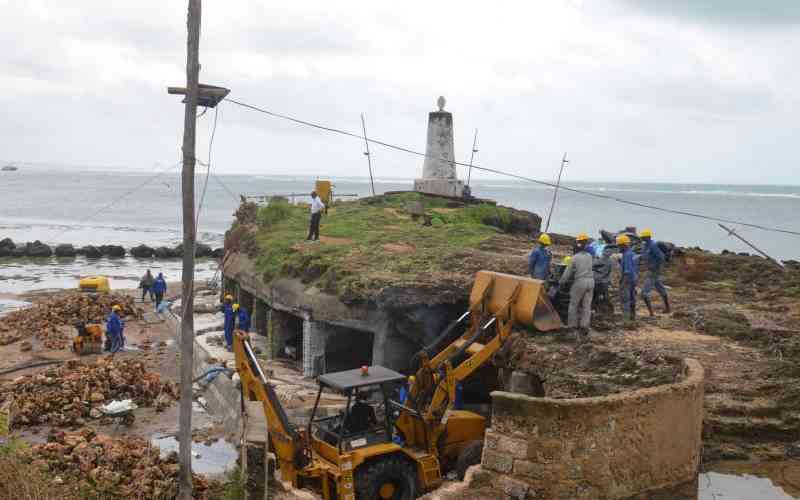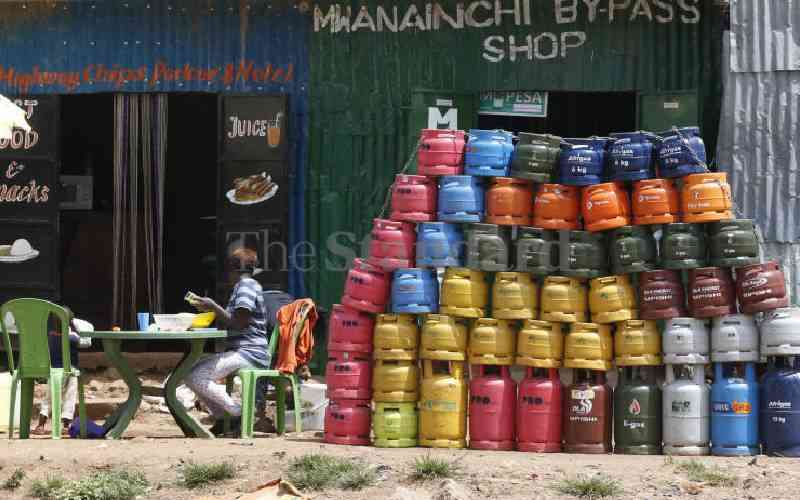Chances of getting employment are getting slimmer as manufacturing companies exit Kenya, spelling doom to an economy that was recovering.
More than 300 people lost their jobs recently following the closure of Cadbury Kenya. On October 1, a further 100 lost their jobs after the 47-year-old Eveready East Africa, the biggest dry-cell battery maker in the region, shut its Nakuru factory.
In September, banking giant Hong Kong Shanghai Banking Corporation (HSBC) formally exited Nairobi, three years after it set up operations. More firms, analysts say, could be exiting the country citing a harsh investment climate.
Indeed, blaming high production costs, Reckitt & Benkiser, Procter & Gamble, Bridgestone, Colgate Palmolive, Johnson & Johnson and Unilever have all relocated or restructured their operations, opting to serve the local market through importing from low-cost manufacturing areas such as Egypt.
Colgate Palmolive ceased manufacturing in Kenya in 2006. It tendered out its plant after a review of its marketing and distribution operations. Reckitt Benckiser, a home and personal care giant, closed its manufacturing plant in Kenya and contracted Orbit Chemical Industries Ltd to produce its household brands such as Jik, Dettol and Harpic.
On May 30, 2014, Tata Chemicals Magadi announced that it was scaling down operations by closing down its main factory, leaving more than 200 permanent workers jobless. The soda ash manufacturer owned by one of India‘s largest companies blames high energy costs for the closure.
Apprehensive
An ailing economy still struggling to attract and retain international firms, Kenya may have to review this latest development that could massively hamper job creation to thousands of unemployed youths.
While the Economic Survey 2014 claims that the total number of persons engaged in both formal and informal sectors increased from 12.8 million in 2012 to13.5 million in 2013, translating to 742,800 thousand new jobs, economists say the closures and exiting of firms could see this number drop by more than 50 per cent this year.
Perhaps this is why Kenyans must be apprehensive. Employment opportunities are constricting as the cost of living surges. Yet, the number of graduates is swelling following the increase in the number of universities in the country. In the past one year, public universities have increased from eight to 22.
On the other hand, the private ones have gone up by three institutions to 30. As a result, university enrolment has appreciated by 35 per cent from 240,551 in 2012 to 324,560 in 2013. The high supply of graduates has put massive pressure on the government to create productive jobs for the expanding labour force. Now, unemployment rate in Kenya stands at an average 45 per cent. In its manifesto, Jubilee Administration promised to create one million jobs annually.
This, it said, would be made possible by growing the manufacturing sector through tax incentives and extending grants to international companies to establish industrial plants in the country to supply the wider East African economy.
But almost 17 months after Jubilee assumed power, the business community and the youths are frustrated. Insecurity and corruption are rife. In addition, the cost of energy is still high, slugging the growth of manufacturing, one of the crucial sectors of the economy. The youths, who understood they would find employment through the reviewed public procurement policy, claim the process is bureaucratic, opaque and favours the rich. To them, the same old dogs still control public sector tendering through proxies.
Besides Egypt, South Africa is the biggest beneficiary of Kenya‘s latest manufacturing exits, getting the bulk of the contract jobs from local companies that have been frustrated by high cost of production and uneven playing field. Today, the cost of power in Egypt is three times lower than Kenya‘s, helped by heavy government subsidies. In the period ended June 30, Egypt spent about Sh1.76 trillion on energy subsidies, amplifying the high appetite international manufacturers have for Egypt.
Moreover, Egypt has recently developed energy market based on coal, oil, natural gas, and hydro power. Its substantial coal deposits in the northeast Sinai are mined at the rate of about 600,000 tonnes per year while oil and gas are generated in the Gulf of Suez and the Nile Delta. Crucial to its manufacturing sector are the gas reserves, estimated at 1,940 cubic kilometres as at 2012, which not only serve the local market but also exported.
“The number of companies that are seeking to relocate manufacturing plants from Kenya is alarming,” says Nikhil Hira, a Tax Partner at Deloitte East Africa. He argues that Kenya needs manufacturing as a way of creating employment and economic activity. “If we are serious about ‘Buy Kenya’, we need to encourage and retain manufacturing.”
Mr Hira says Kenya‘s infrastructure has not kept pace with its peers and has not been fully maintained over the past years. “Without suitable infrastructure, manufacturing will become more difficult. We are seeing instances where it is probably cheaper to import than manufacture locally. The cost of power, water, and minimum wages all had a negative impact on manufacturing.”
Beyond the high cost, experts say the lukewarm growth of the economy and low consumer confidence due to diminishing purchasing power is further staining the manufacturing sector.
East Asia Miracle
Underneath these challenges is inevitable pressure on Kenya Revenue Authority from the government to meet its revenue target requirements which is now being piled on businesses. “However, if we continue relying on the same taxpayers over and over without any significant increase in the tax base, we are diverting businesses attention from what they should be doing —focusing on efficiencies,” says Mr Hira, adding: “Even importing is becoming an issue — although there has been some improvement — as it is taking far too long and the customs system is out-dated and slow.”
“It is a pity because as a country we need to ensure that manufacturing companies thrive. They tend to have long supply chains that support quality jobs,“ said Eric Musau, a research analyst at Standard Investment Bank.
His sentiments were echoed by Mohamed Wehliye, Senior Vice President —Financial Risk Management, Riyad Bank, Saudi Arabia: “When a single factory closes down, it creates a vortex that has far-reaching consequences. Economists estimate that every manufacturing job creates approximately 15 jobs outside the factory.”
In his Thursday column in The Standard, Mr Wehliye observes that if you close a manufacturing plant, a supply chain of producers disappears with it. This, he says, dozens of companies supplying the factory with packaging, office equipment, telecommunication services, energy and water utilities, marketing and sales support, building and equipment maintenance services and security service providers all suffer.
“The burden then spreads to local restaurants, schools, shopping outlets, the mama mbogas and then to the tax base that supports public services. So when we hear of some 200 jobs being lost because of some factory closing shop, we should know that this translates to over 3,000 jobs lost in the economy from the closure of that single factory,” Mr Wehliye adds. The multiplier effect, he says is far-reaching when many factories close shop and relocate elsewhere.
Critics observe that for Kenya‘s economy to grow, and create the promised one million jobs in a year, drastic transformations must be introduced to stimulate the manufacturing sector. They say Kenya must adopt the “East Asia Miracle” where large scale manufacturing plants created many jobs through the creation of stable macroeconomic environments.
Senior Lecturer at the University of Nairobi‘s School of Business X.N. Iraki says that Kenya‘s manufacturing is not yet competitive due to the high direct and indirect costs facing it. “We seem not to take manufacturing seriously; roads in industrial area have not been the best. Even in schools, we fail to see the importance of human resources who drive manufacturing. An engineering student competes for government loan with an archaeology one,” Dr Iraki said.
Kenya, he says, has scarcely been kind with subsidies like in other countries that treasure manufacturing sector. According to Dr Iraki, Kenya‘s economic environment is yet to change positively like the political one. Liberalisation of the economy, he says, left a lot of firms not ready for competition. And with the entry of cheap imports from China, high-cost producers have gone bust.
Outsourcing hub
“If you look careful, the firms closing are in traditional products that rarely spawn innovations. It may also mean that Kenya is more competitive in services and we could leverage on that,” he added.
His suggestion is that Kenyan firms should concentrate where they appear to be good at—financial services and technology. “Note how the United Kingdom rode on de-industrialisation by turning into services. We are highly ranked in areas like financial services. See how Thika reinvented herself after the end of manufacturing.”
With other sectors such as agriculture and tourism struggling, the Jubilee Administration‘s plan to create about one million jobs a year could face headwinds. “We need to look at how we are going to create employment for the many graduates coming out of our universities. Making Kenya a Business Process Outsourcing hub would be the ideal way forward. But we are moving too slowly,” said Mr Hira.
 The Standard Group Plc is a multi-media organization with investments in media
platforms spanning newspaper print operations, television, radio broadcasting,
digital and online services. The Standard Group is recognized as a leading
multi-media house in Kenya with a key influence in matters of national and
international interest.
The Standard Group Plc is a multi-media organization with investments in media
platforms spanning newspaper print operations, television, radio broadcasting,
digital and online services. The Standard Group is recognized as a leading
multi-media house in Kenya with a key influence in matters of national and
international interest.
 The Standard Group Plc is a multi-media organization with investments in media
platforms spanning newspaper print operations, television, radio broadcasting,
digital and online services. The Standard Group is recognized as a leading
multi-media house in Kenya with a key influence in matters of national and
international interest.
The Standard Group Plc is a multi-media organization with investments in media
platforms spanning newspaper print operations, television, radio broadcasting,
digital and online services. The Standard Group is recognized as a leading
multi-media house in Kenya with a key influence in matters of national and
international interest.










